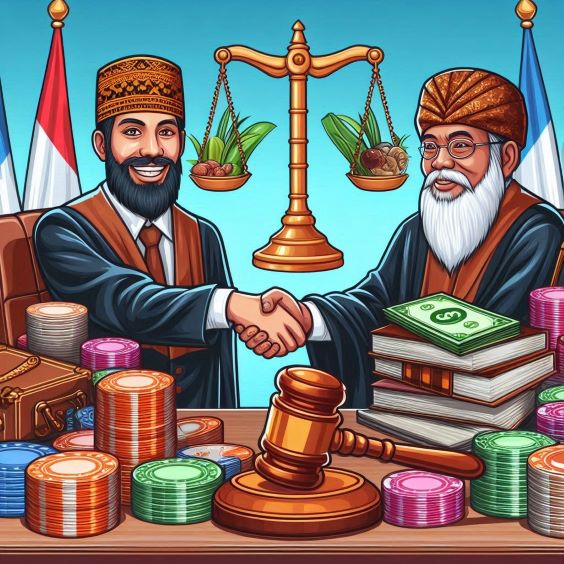
Indonesia has seen a rapid rise in the popularity of online gambling, particularly with the phenomenon known as “slot gacor.” This trend isn’t just reshaping the entertainment industry; it’s also starting to have significant political ramifications. As online slot games become more entrenched in Indonesian society, they are beginning to intersect with political discourse, regulation, and even policy-making.
The government’s stance on online gambling is complex. While many forms of gambling are illegal in Indonesia due to the country’s predominant religious and cultural beliefs, online gambling has slipped through the cracks of regulation. This loophole has allowed the situs slot gacor trend to flourish, leading to debates among policymakers about the best way to address the situation.
Gambling and Government Regulations
The growing popularity of situs slot gacor forces the Indonesian government to confront the challenges of regulating online gambling. As more citizens participate in these games, there is increased pressure on the government to implement stricter regulations or even ban online gambling altogether. However, this is a delicate issue. On one hand, stricter regulations could appease conservative factions within the country that view gambling as immoral. On the other hand, a complete ban could drive the activity underground, making it harder to monitor and control.
This tension between regulation and freedom is becoming a central issue in Indonesian politics. Some political leaders argue for stronger enforcement of existing laws, while others advocate for a more balanced approach that includes education and harm reduction strategies. As the debate continues, the future of slot gacor and other online gambling activities in Indonesia remains uncertain.
Impact on Elections and Policy-Making
The slot gacor craze is also starting to influence electoral politics in Indonesia. Politicians are beginning to recognize the potential voting power of the millions of Indonesians who gamble online. Some are using this as an opportunity to gain favor by promising to protect gamblers’ rights or regulate the industry more effectively. Others are taking a harder stance, pledging to crack down on online gambling as a way to appeal to conservative voters.
As a result, online gambling could become a key issue in upcoming elections, with candidates taking clear stances on the regulation and legality of these activities. This, in turn, could shape policy decisions for years to come, impacting the gambling industry and the broader landscape of Indonesian politics.
READ ALSO: Corrupt Politicians and Lack of Serious Concerns in Legislating Effective Gambling Laws
Public Opinion and the Future
Public opinion on gambling is deeply divided in Indonesia. While some see it as a harmless form of entertainment, others view it as a moral issue that needs to be addressed. This divide is reflected in the political discourse, with different parties and politicians taking varying stances on the issue.
As the slot gacor trend grows, public opinion will likely play an increasingly important role in shaping government policy. If the majority of Indonesians begin to view online gambling as a legitimate form of entertainment, it could lead to more lenient regulations and a greater acceptance of these activities. Conversely, if public opinion turns against online gambling, it could lead to stricter laws and harsher penalties for those who participate in these games.
The intersection of politics and gambling in Indonesia is a dynamic and evolving issue. As slot gacor continues to gain popularity, it will be interesting to see how it shapes the political landscape and influences the future of online gambling in the country.

